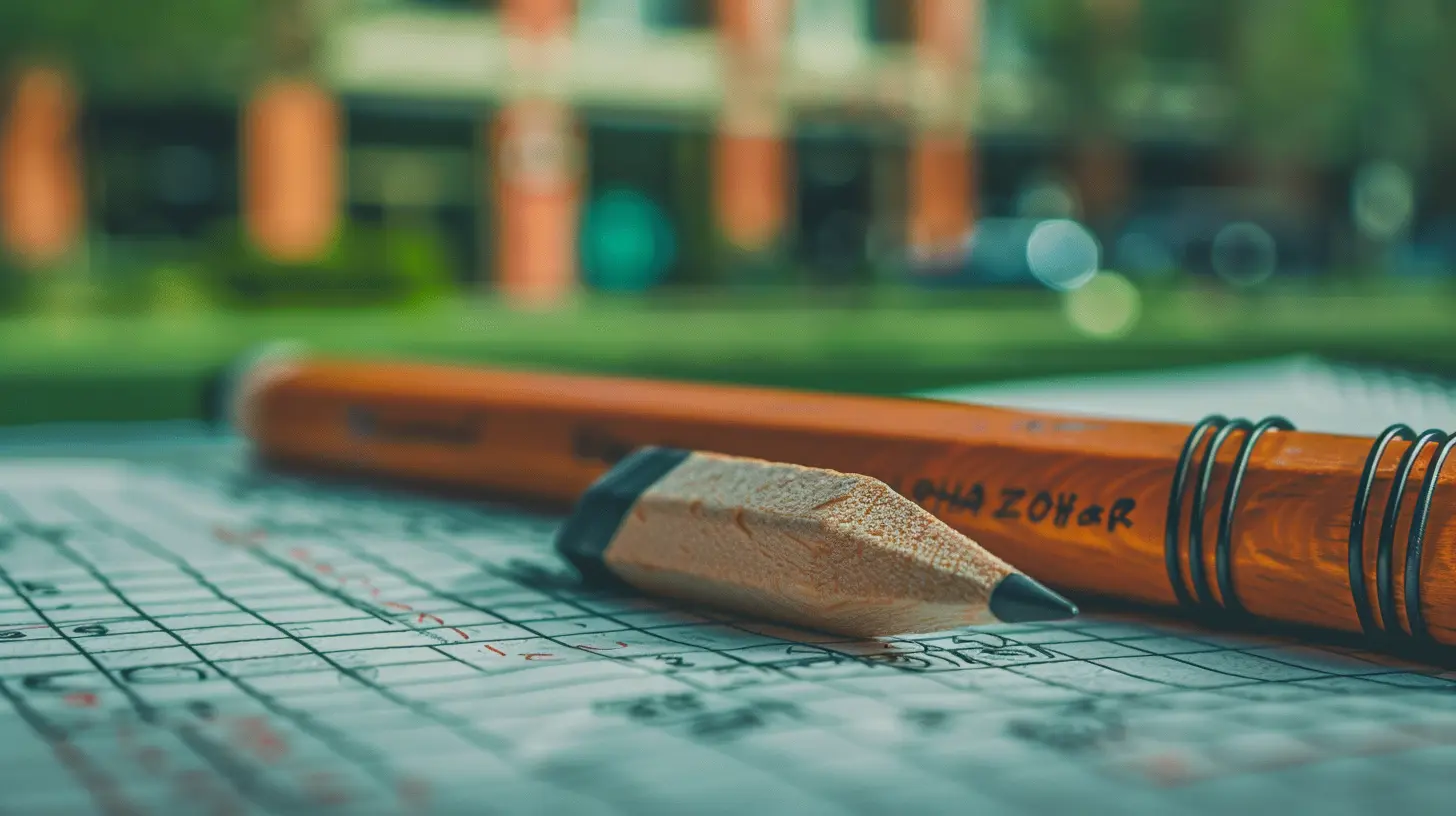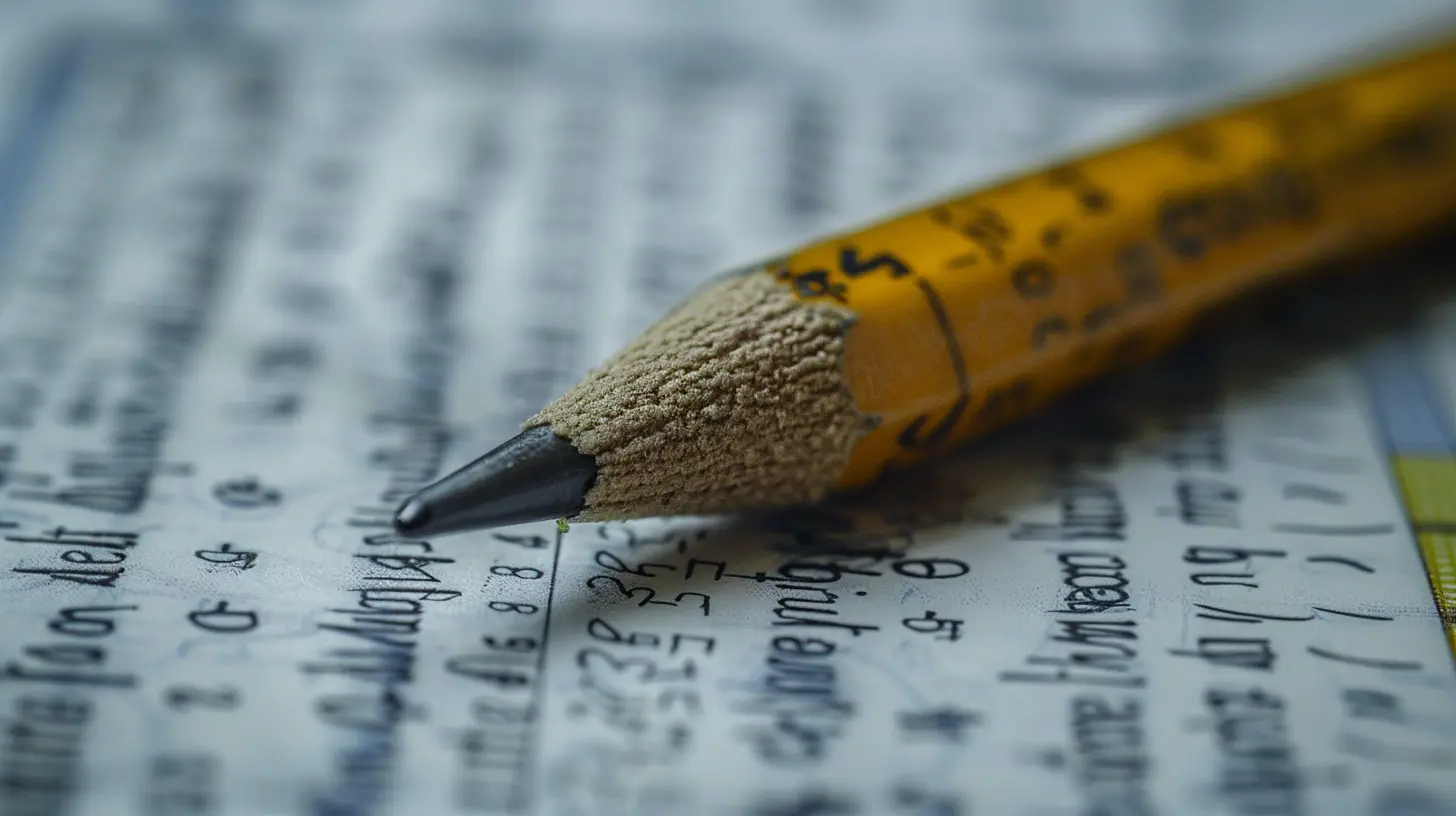The Importance of Practice in Mastering Math Exams
22 September 2025
Let’s be real—math isn’t everyone's favorite subject. Some people dread it, others tolerate it, and a few absolutely love it. But regardless of how you feel about it, if you're a student, there's no getting around math exams. The big secret to doing well? Practice. Yep, it’s that simple—and that hard. Practicing math is like training for a marathon. You don’t show up on race day without having run a few miles before, right?
In this article, let’s chat about why practice is the golden key to nailing math exams, how it rewires your brain, builds confidence, crushes fear, and ultimately turns those scary equations into second nature.
Why Practicing Math Really Works
We all know the old saying: "Practice makes perfect." But when it comes to math, it's not just a cute motivational quote—it’s a scientific fact. Practicing math helps your brain recognize patterns, apply formulas faster, and avoid small mistakes that can cost you big time.Repetition Builds Muscle Memory
Just like a guitarist memorizes chords or a basketball player drills free throws, math students need repetition to create what I like to call "math muscle memory." When you solve the same type of problem over and over, it becomes automatic. You don’t have to pause and overthink every little step—you just know what to do.Imagine trying to drive a car for the first time. Overwhelming, right? But after a few lessons, it becomes second nature. That’s the power of practice.
Practice Turns Confusion into Clarity
Ever stared at a math question and thought, "What in the world is this asking me?" You’re not alone. Math problems can look like they're written in ancient hieroglyphics. But the more problems you work through, the easier it becomes to decode them.Familiarity Breeds Understanding
The first few times you try algebra or calculus, it might feel like you're lost in a forest without a map. But as you practice, patterns start to pop out. Questions that once looked complex now make sense. It’s like your brain starts to speak math fluently. And when that happens, you stop fearing the unknown.
Practice Helps You Avoid Costly Mistakes
Small missteps—sign errors, misplacing a decimal, forgetting to carry a number—can wreck an otherwise perfect answer. And let’s face it, these mistakes often come from rushing or not reading carefully. Practicing math gives you the space to slow down, pay attention, and notice where you often slip up.Spot Your Weak Spots
The beauty of practice is that you begin to see patterns in your own mistakes. Maybe you always forget the negative sign in quadratic equations, or maybe calculus limits throw you for a loop. Practicing helps you identify those tricky areas so you can focus on improving them before exam day.
Builds Confidence Like Nothing Else
Have you ever walked into an exam room sweating bullets, heart thumping like a drum? That’s usually the fear of the unknown. But when you’ve practiced enough, that fear fades away. You sit down and think, “I’ve seen all this before. I’ve got this.”Confidence = Performance
Confidence isn’t just good for your mental health—it directly impacts your exam performance. When you're confident, you're not second-guessing every answer. You’re calm, focused, and more likely to solve problems correctly the first time around. And nothing builds that kind of confidence like practice.Practice Prepares You for the Timing Crunch
Math exams aren’t just about getting the right answer—they’re about getting the right answer quickly. Time is limited, and those minutes fly by. Practicing under timed conditions teaches your brain to think fast and stay sharp.Mastering Time Management
When you work through practice problems with a stopwatch, you're training your brain to work within a timeframe. You learn how long it takes you to do certain types of questions, and you’ll know when to move on instead of getting stuck.Think of it like cooking with a timer. You don’t want to be scrambling to bake a cake five minutes before the party starts. You want to know how long each step takes so you're ready well in advance.
Practice Makes You Exam-Savvy
Believe it or not, there's a strategy to taking math exams. It’s not just about knowing your stuff—it’s about knowing how to tackle the test.Learn to Decode Questions
The more practice questions you do, the more you recognize how exam questions are structured. You get used to the kind of tricky wording that test-makers love to throw at you. Practice literally trains your brain to "speak test."Sharpen Problem-Solving Skills
Practice isn't about memorizing answers—it’s about problem-solving. Real math exams test how well you can apply concepts in unfamiliar situations. Practicing different types of problems prepares you for curveballs, so you’re not caught off guard.It’s Not About Cramming—It’s About Consistency
Here’s a myth that needs busting: You can’t master math by pulling an all-nighter before the exam. Sure, you can review your notes or formulas, but you can’t "cram" true understanding. Math is cumulative. Every lesson builds on the last one, like stacking LEGO bricks.Daily Practice Wins the Race
Practicing math is like going to the gym. You won’t get six-pack abs by doing 300 sit-ups the night before beach day. But 10–20 minutes a day? That builds real strength. Math works the same way—little by little, day by day.How to Make Your Math Practice More Effective
Now that we’ve talked about why practice is essential, let’s get into the how. Practicing randomly without a plan can waste your time. But with a few smart strategies, you can get the most bang for your buck.1. Focus on Understanding, Not Memorizing
It’s tempting to just memorize steps, but that won’t help when you face a problem that looks slightly different. Instead, focus on why each step works.Ask yourself: What’s the logic behind this formula? Why do I divide here? When should I apply this method?
2. Practice a Variety of Problems
Don’t just stick to the easy ones or the ones you already know. Push yourself. Mix in hard problems, word problems, and past exam questions. Challenge builds skills.3. Track Your Mistakes
Keep a mistake journal. Write down every mistake you make and why you made it. Over time, you’ll notice patterns—and you can fix them.4. Simulate Exam Conditions
Once a week, take a full-length practice exam with a timer. No breaks. No distractions. This helps you prepare mentally and physically for the real deal.5. Use Online Tools and Resources
There are tons of websites and apps that generate free math problems. Khan Academy, IXL, and even YouTube channels have walkthroughs that can guide your practice.Practicing Math Doesn’t Have to Be Boring
Let’s not sugarcoat it—math practice can seem dull. But it doesn’t have to be. There are creative ways to make it more engaging.Turn It Into a Game
Combat boredom by turning practice into a challenge. Set a timer and see how many problems you can solve in 10 minutes. Compete with friends for the highest score. Reward yourself when you beat your personal record.Practice with a Buddy
Pair up with a classmate. Quiz each other, explain concepts out loud, or solve problems together. Teaching someone else is one of the best ways to really solidify your understanding.Final Thoughts: Practice Is the Path to Mastery
Here’s the bottom line: You don’t have to be a math genius to score high on your exam. You just have to be consistent. Think of math like learning a new language—it sounds foreign at first, but with enough speaking (or solving), it becomes natural.Practice isn’t just helpful—it’s non-negotiable. It’s the difference between guessing and knowing, between panicking and progressing, between failing and flying high.
So the next time you’re tempted to skip your math homework or say “I’m just not a math person,” remember—every practice problem is a step closer to mastery.
all images in this post were generated using AI tools
Category:
Test PreparationAuthor:

Olivia Chapman
Discussion
rate this article
1 comments
Weston McKay
Excited to explore how practice transforms math skills and confidence!
October 5, 2025 at 12:05 PM

Olivia Chapman
Thank you! I'm glad to hear you're excited—practice truly makes a significant difference in both skill and confidence in math!


